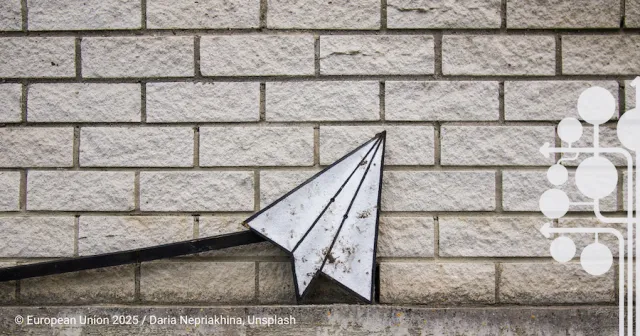Digital practices and gender equality
[Translation : EPALE France]
The Departmental Youth Information Association, ADIJ 22 (Brittany region, Côtes d'Armor department), is recognised as an association under the French law of 1901, and was created in 1981 by youth workers, elected representatives and professionals. It coordinates, leads and develops the Information Jeunesse network. It also creates and sells educational tools.
Through local action, development and coordination of the Info Jeunes network, ADIJ 22 strives to give all young people in Costa Brava (aged 11 to 30) and their families access to comprehensive, reliable and free information and personalised support to promote their independence and civic involvement.
Its scope of action covers the whole of the Côtes-d'Armor area, with the following five missions:
1 - Coordination of the Info Jeunes network (14 youth information centres currently in the region)
2 - Coordination of the Promeneurs du Net network (40 professionals)
3 - Coordination of the “1 Toit 2 Générations Côtes-d'Armor” intergenerational cohabitation scheme (between 10 and 15 cohabitations per year)
4 - Creation, updating, sale and implementation of workshops on four edutainment tools: Câlins-Malins, Mille Possibles, Potes et Despotes and Quiz'Inn
5 - Awareness-raising and prevention events on various themes: Emotional and sexual life, self-esteem, harassment and discrimination, food, social networks and the media, involvement and projects and risky behaviour.
Élise Becavin, director of ADIJ 22, explains to the EPALE network how the association's work addresses gender issues in the digital field.
> You work with young people, particularly in the field of digital technology. How do you see the place of young women in the digital world?
We need to look at the judgements made about the exposure of young women on social networks. For example: young men who may say “they don't respect themselves if they expose themselves too much, in swimming costumes, etc”. We have to question what is disturbing about this exposure. What does it make us think, internally? How do we allow ourselves to react (harassment, cyber-harassment, rumours, etc.) when we consider that a young woman “doesn't respect herself”. We need to look more broadly at the issue of self-respect and respect for others, which places an additional burden on young women (be sexy but not too sexy). By focusing on the exposure of young women, we are in danger of collectively absolving ourselves of the real problem: the construction of prejudices, stereotypes and discriminatory attitudes.
> Do you think that specific initiatives should be set up for young women, in relation to digital technology for example?
On top of the educational materials online, it could be worthwhile working on the relationship with norms and models, across all genders. In other words, this affects everyone.
We need to put in place initiatives that encourage people to think collectively about gender bias, and that everyone can benefit from. Gender bias in the world of video games, Fisha accounts, etc.
> You work with a wide network of youth support professionals. How is gender equality taken into account in joint discussions?
By considering the gendered social construct and the prejudices, stereotypes and discrimination that can result from it.
From a sociological point of view (based on observations in the classroom and at events), we know that young men are more likely to be questioned about things that call on their imagination and creativity, whereas young women are more likely to be asked to summarise what has been said or to present information they have learned. Being aware of these biases allows us to reflect on our professional approach, so as not to reproduce or reinforce these mechanisms. This is what the Côtes d'Armor Promeneurs Du Net network (https://www.promeneursdunet.fr/dept22) is working towards, and at the same time is beginning to identify discriminatory situations affecting professional women in particular. This shows that the issue of discrimination and sexism affects all generations.
> How is this being implemented in your organisation?
By including everyone. We offer gender equality events.
> You are working on an European Erasmus + project on digital violence among young people. In your opinion, what are the main challenges for Europe in this area? How can awareness of women's rights be expressed in these areas?
Large-scale digital surveillance can be problematic for women's rights. For example, data linked to applications for monitoring menstruation and contraception can be used against women in countries with anti-abortion policies. Tracking tools such as airtags can be misused to control women's movements and maintain a hold on them.
As far as our Erasmus + project is concerned, the idea is to take inspiration from other countries' support schemes. Pooling our knowledge will undoubtedly help in developing our means of action.
> Do you have a message for the EPALE community, which dedicates a lot of content to gender equality?
You might want to think about the masculinist raids that constitute mass cyber-harassment, and be aware of “vocabulary” used: memes, deep-fakes, dogpiling, etc. The media coverage of the lawsuit between Johnny Depp and Amber Heard is a good example: https://www.france.tv/france-5/la-fabrique-du-mensonge/la-fabrique-du-mensonge-saison-3/4557595-affaire-johnny-depp-amber-heard-la-justice-a-l-epreuve-des-reseaux-sociaux.html
Finally, it’s important to talk in order to adjust our representations and actions. There is still a long way to go, but the pathway has been identified and we are making progress along it.
It is also important to pay attention to issues with other minorities in the digital world.
References:
BRODIN Oliviane, MAGNIER Lise, « Le développement d'un index d'exposition de soi dans les médias sociaux : phase exploratoire d'identification des indicateurs constitutifs », Management & Avenir, 2012/8 (N° 58), p. 144-168. DOI : 10.3917/mav.058.0144. URL : https://www.cairn.info/revue-management-et-avenir-2012-8-page-144.htm




